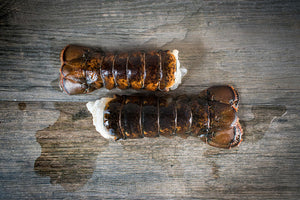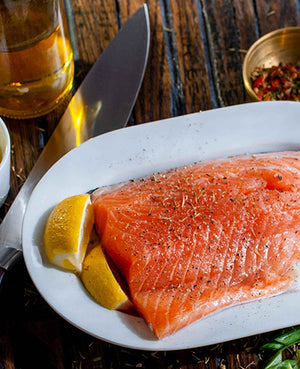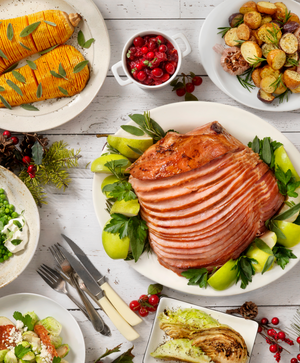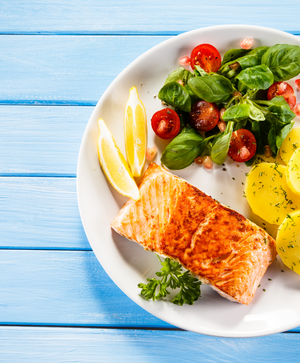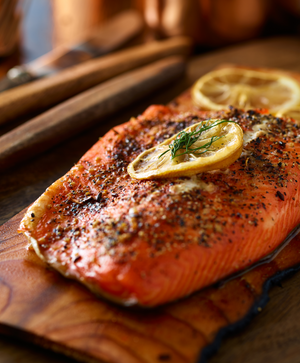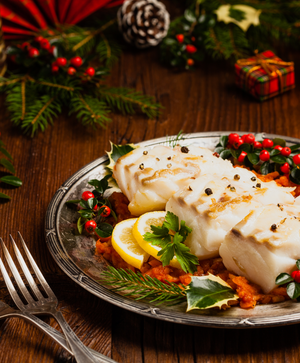A Little Background on Fillets of Salmon
- What’s the best salmon portion size- Most traditionally stick within 4-6oz depending on your appetite, but the great thing about cutting it yourself is that YOU get to decide!
- Fillet vs. Filet - what’s the difference? In the US, a “filet” is more commonly referencing a piece of meat, like steak, whereas a “fillet” is referencing fish (or sometimes chicken). You can use them interchangeably and always in regards to a boneless cut.
- If you’re taking the fish straight from the fishmonger, ask them to remove the head, scales, and innards before you bring it home.
- To ensure your salmon is fresh, look for moisture and avoid any brown spots or curling skin.
- Make sure you are cutting your fish with a sharp knife. You want to avoid the back-and-forth sawing motion as much as possible.
Step 1: Prep Your Fish
Run a paper towel across the skin (be sure to hit both sides!) to ensure there are no residual scales. Next, cut the fish along the backbone on both sides. You can achieve this by putting your (sharp!) knife parallel to the bone. Once you’ve finished, pull out the pin bones using a standard set of tweezers. The pin bones are in the fleshiest part of the fish.
Step 2: Remove the Skin
Removing the skin can feel like a daunting task. To make the process as painless as possible, here’s a little trick you can use to get the skin off in one long knife cut. To start, lay the fish skin down. Next, take your knife and cut a couple of inches of skin away from the fillet. Once you have a little room, cut a hole into that skin. Link your finger from your non-dominant hand in the spot. It will allow you to hold the skin in place while cutting the rest of the skin away from the salmon fillet.
Step 3: Cut Your Salmon into Fillets
There are four different cuts of salmon that you can cut into several fillets.
- Top Loin: This is considered the highest quality part of the salmon. It starts from right below the head, to where the tail begins to taper off on the thicker side of the fat line. The high fat-to-flesh ratio is evident in its thick fillets. These fillets are great for any cooking style.
- Loin: The other side of the fat line is the loin. These fillets are similar to the top loin in fat content but are slightly thinner salmon cuts. Also great for all cooking styles.
- Belly: The part above the tail with the thickest fat lines is known as the belly. It is considered a delicacy due to its small size and high omega-3 concentration, and it can be roasted briefly or used to create small strips. However, be careful of overcooking this delicious portion!
- Second Cut/Tail: The remaining salmon is the salmon tail cut. These portions are especially great to grind up to create salmon burgers or if you want to make salmon jerky.
Using these three steps, anyone is capable of creating a delicious salmon meal with the right fish. As always, if you’re looking for the best cuts of fish and meat, look no further than Domestic Seafood.


